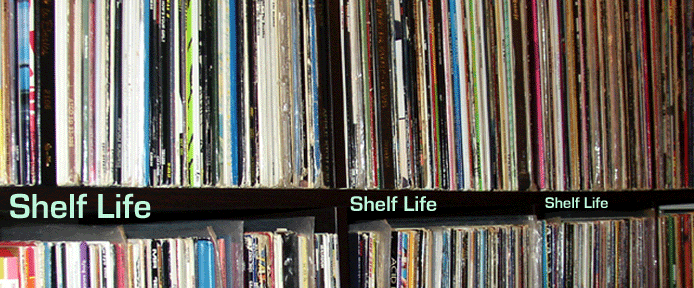By the middle of the 80s, Neil Young had undergone such an extreme personal and artistic transformation that his younger 60s incarnation would barely have recognised himself. Not only had his musical output found him wandering in a creative wilderness for several years, but his political views had turned 180 degrees. He went so far as to praise the administrative policies of liberal nightmare Ronald Reagan. He had become a landed middle-aged rich guy, and embraced the politics of the rich, as was the style of the day.
Both musically and lyrically, 1986's Landing On Water stands out in Young's catalog as most clearly a product of the 80s. While his three prior records had explored other styles both past and present, Landing was the first Young album since... I guess Harvest to sound like whatever else was on the radio at the time. And whereas in Harvest's day Young was at the forefront of creating that particular sound, by Landing he was simply following trends.
But having said all that, I was surprised to find that, overall, if taken on its own terms, the album is not terrible. Before re-listening to it a few times in order to write this post, my recollections of the few listens I had given Landing in the past were that it was utter shit, but it's not that bad. It's not especially memorable, and certainly pales within the standards of the Young canon, but as a standalone 80s rock album it's... passable. And has a few fine moments.
The initial warning signs are right on the back cover: only three musicians (including Young) are credited, the lists of instruments for each all include synthesizer, and there's no bassist. At least there's a real drummer (Steve Jordan, incidentally, making his first appearance on a Young record here, would go on to drum for and produce several Keith Richards solo albums and to produce one of my favourite major label alt-rock albums of the pre-Nirvana era). The opening track seems to confirm one's worst fears: dated synths, awful canned drum effects, guitar a mere afterthought. It's the 80s alright. Young gets points for stylistic consistency here, and for embracing this style wholeheartedly, but yeah, the whole album sounds like that.
Which is what you need to get past to appreciate the album's admittedly few good points. There's some decent songwriting buried under the questionable production. "Weight of the World" and "Hard Luck Stories", in particular, could potentially benefit from a less digital makeover. And on two tracks Young uses the San Francisco Boys Chorus to fine effect, a welcome curve ball in the monochromatic production.
Fortunately, Lucky Thirteen doesn't use up the album's best song, so I can post it here: "Violent Side" is a fine example of both points mentioned above: well-written song, nice use of the choir. I'm also posting "Hard Luck Stories" because it has the most immediately accessible melody on the album, and I like the way it clashes with the lyrics. Hate that fake-ass slap bass that opens it, but you take the highlights where you can on an album like this. Is it catchy or irritating? You decide.
One track Young did include on Lucky Thirteen (along with the somewhat generic hard-rocker "Pressure"), curiously, stands as his most outspoken rejection of his past, a full-fledged refutation of the ideals of the 60s. "Hippie Dream" is simultaneously angry and wistfully nostalgic. "Take my advice/Don't listen to me," he begins. The refrain opens "But the wooden ships/Were a hippie dream", a fairly transparent reference. Towards the end, he explains his turn from the communalism of the 60s to the individualism of the 80s:
Just because it's over for you
Don't mean it's over for me
It's a victory for the heart
Every time the music starts
The dream is over, but I've still got my music (and, um, untold riches, by the way) to keep me going, he says. You? You're on your own. But he knows "It's so ugly/So ugly" and says so as the song ends. It took Young a little longer to figure it out than most, but when he did, he embraced it with a vengeance.
Buy it... on vinyl.
From my deck to you: Neil Young - "Violent Side" and "Hard Luck Stories"

